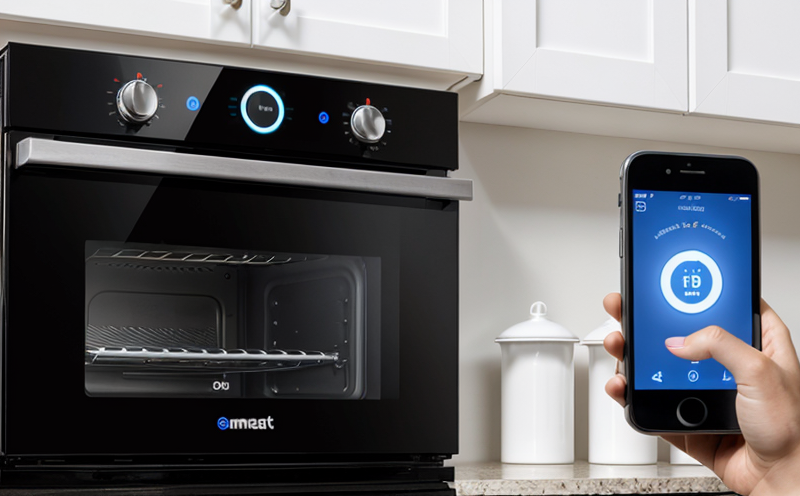ASTM F2987 Durability Testing of Smart Consumer Electronic Devices
The ASTM F2987 standard addresses the durability testing requirements specifically designed for smart consumer electronic devices. This service ensures that manufacturers, quality managers, and compliance officers can verify the robustness and longevity of their products before they reach the market.
Smart consumer electronic devices are increasingly integrated into everyday life, from home appliances to wearable technologies. These devices must withstand various environmental conditions, mechanical stresses, and user interactions over extended periods. ASTM F2987 provides a framework that helps manufacturers achieve this goal by defining test methods tailored to the unique characteristics of smart electronics.
The testing protocol includes multiple cycles of functional and structural durability checks aimed at simulating real-world use scenarios. For instance, cyclic loading tests replicate the impact of daily usage such as opening doors or drawers in appliances like refrigerators or dishwashers. Similarly, vibration tests mimic the effects of transportation and handling processes.
Preparation for ASTM F2987 testing involves careful selection of representative specimens that accurately reflect the intended end product. This includes ensuring all components are installed correctly and operational settings are set according to manufacturer specifications. Once prepared, these devices undergo a series of tests designed to evaluate their ability to maintain performance under specified conditions.
The testing apparatus used in ASTM F2987 includes specialized equipment capable of simulating environmental factors such as temperature changes, humidity exposure, and electromagnetic interference (EMI). Structural integrity tests involve applying force or pressure to various parts of the device while monitoring for signs of failure. Functional checks ensure that all features continue operating properly throughout each test cycle.
Acceptance criteria are based on industry standards which specify acceptable limits for performance degradation. Devices must pass these stringent requirements before being deemed durable enough for consumer use. Compliance with ASTM F2987 ensures manufacturers meet regulatory expectations while also enhancing brand reputation through demonstrated product reliability.
ASTM F2987 testing plays a critical role in safeguarding both consumers and producers by identifying potential weaknesses early on during development phases when corrective actions can still be implemented cost-effectively. This approach helps prevent costly recalls post-launch, protects against safety issues that could harm users, and fosters innovation within the industry.
Manufacturers who invest in ASTM F2987 testing gain valuable insights into how their products behave under demanding conditions. By identifying areas for improvement early on, companies can refine designs to better meet market demands while reducing risks associated with product failure or recall.
- Identifying potential weaknesses in design and manufacturing processes
- Ensuring compliance with regulatory requirements
- Maintaining consistency across batches of products
- Enhancing overall quality control measures throughout the production cycle
In conclusion, ASTM F2987 durability testing is an essential step in ensuring smart consumer electronics are fit for purpose. Through rigorous evaluation, manufacturers can build trust with customers and establish themselves as leaders in product reliability.
Applied Standards
The ASTM F2987 standard has been widely adopted by industries worldwide due to its comprehensive approach to evaluating smart consumer electronic devices. It aligns closely with international standards such as ISO 13406-1, which provides guidelines for quality management systems in the healthcare sector but is equally applicable across various domains.
ASTM F2987 defines specific protocols for testing different aspects of durability including mechanical stress resistance, thermal shock resilience, and electromagnetic compatibility (EMC). These tests are designed to simulate real-world conditions that devices may encounter during their lifecycle.
For instance, mechanical stress tests evaluate the device’s ability to withstand repetitive movements such as door openings or drawer pulls in appliances. Thermal shock testing assesses how well components can handle rapid temperature changes, which is particularly relevant for outdoor devices like lawn equipment or solar panels.
Electromagnetic compatibility (EMC) tests ensure that smart devices do not interfere with other electronic systems within the home or workplace. Compliance with these standards helps manufacturers avoid costly penalties associated with non-compliance and ensures seamless integration into existing networks.
The ASTM F2987 standard also incorporates elements from other relevant standards such as EN 60335-1, which sets safety requirements for household electrical appliances; IEC 62368-1, covering safety aspects of information technology equipment; and UL 1449, addressing safety considerations in low voltage power supplies.
By adhering to these established standards, laboratories specializing in ASTM F2987 testing provide assurance that their results are accurate and reliable. This consistency allows manufacturers to compare data across different batches or versions of products confidently knowing they meet the same rigorous criteria.
Customer Impact and Satisfaction
The impact of ASTM F2987 durability testing extends beyond just compliance; it significantly enhances customer satisfaction by ensuring that smart consumer electronic devices perform reliably over time. By identifying potential issues early in the development process, manufacturers can address them before they become critical problems.
- Reduces the likelihood of product failures leading to customer dissatisfaction
- Aids in achieving higher levels of customer trust and loyalty
- Promotes positive brand image through demonstrated reliability
- Decreases售后





